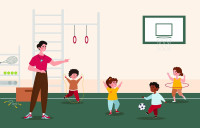Life & Style
Dealing with unnecessary remarks from family members
As families gather for Tihar, many of us are likely to have to listen to elders making hurtful remarks that can trigger us to react.
Tashi Gurung
Tihar is just around the corner, and in a few days, most of us will be spending time with our families and trying to keep an open mind.
While the festive period allows us to spend time with family members and relatives, it is also during this period that we get a lot of remarks like 'Oho, kasto mottako' (You have gained weight); 'Kina noboleko?' (Why are you so quiet?); 'Chhya, kasto luga lagako?' (What kind of clothes are you wearing?) from our close ones. No matter how often we have heard those comments, they hit us like bricks every time and leave us thinking—am I not really good enough? Am I not like the others? Am I unusual?
Such comments can trigger us and force us to deal with deep-laden insecurities and complexes all over again.
As a working mental health professional, this constant judgment and questions are one of the more common issues clients, especially adolescents, have brought into my counselling sessions. My clients often say that the elders in their lives, including parents, compare how so and so's child has accomplished this or done that before coming to the inevitable question—what are you doing with your life?
Such comparisons really hurt the individual's self-esteem. I remember one of my clients saying, "I feel that I am just missing something that I would never be able to fill."
No matter how empathetic we try to be towards the elders in our lives whenever they make such remarks, we find ourselves being that teenager or, moreover, the child version of ourselves. I have also been at the receiving end of such comments myself, particularly during my college days. Whenever I came home from abroad, I would get comments from family members and relatives about my weight and appearance. Such comments instantly brought back memories of how I hated my physical appearance as a child. Even though I was a college-going student, I reacted to such comments about my appearance by lashing out at family members and refusing to talk to them for the rest of the day.
I have realised that my reactions are not unnatural. In fact, it's a defence mechanism—regression. Regression means reverting to a less developed stage, which was exactly what happened. I was that child again: helpless and insecure.
It turns out that this defence mechanism is actually there to protect me. I felt hurt by the comments from family members that this defence mechanism allowed me to rely on the less intense, perhaps immature, feelings of aggression and irritability.
Many of my peers and clients in their thirties also say, "No matter how independent and high functioning I am, the elders in my life just do not see me as an adult."
When dealing with such situations, the regressive state of the child gets triggered, and we start to want to please these adults. And as we know, we are not always able to do so, and a very common feeling of guilt resurfaces. This hampers our mental state.
Thus, being aware of regression can make dealing with our family members much easier. The foremost thing we can do, especially if the family member is receptive and listens, is to let them know how we feel. Seeking help is very beneficial.
Counselling and therapy are also two other useful tools. They allow us to look into these deep-rooted feelings we have built up over the years. We learn to identify and label these feelings. We acknowledge them first ourselves. When we do that, we are able to express it to others.
Many-a-times, we might find ourselves dealing with a rigid wall: the family member is just not willing to listen. Talking with a counsellor will help to build on an adaptive perspective and make us realise that what matters the most are the improvements we have made over the years. No two individuals ever have the same pathway in life; everyone is on their own. We NEED to acknowledge our progress, no matter how small we or others might consider them.
It is also important to note that confronting our emotions and building a healthy perspective can bring closure, though we might not always be ready for that step. There's nothing wrong with avoiding situations and scenarios where we will likely get unnecessary criticisms.
We can also learn the art of letting go. It's a feat that is very hard to master. When we accept family members for who they are, it can be very liberating. So, the next time another snarky comment comes, we can give a smile, knowing that what is happening is natural and remind ourselves that it is what it is.
Obviously, deep-rooted conflicts cannot be ignored, but we can always do our part in helping ourselves deal with them better. Any small step in that direction can make a huge difference in nurturing that child in us and healing our adult selves.




 9.6°C Kathmandu
9.6°C Kathmandu










